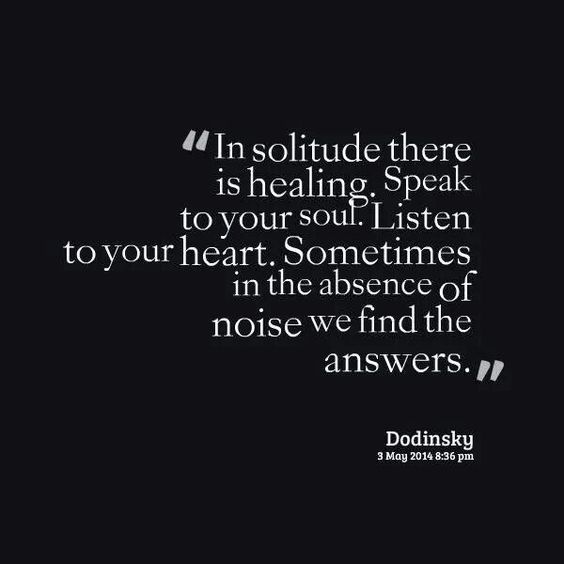Before we begin...let's catch up on journals:
Journal 12
Irena Sendler said, "Fear makes you weak; anger makes you strong." Do you agree with her statement? Is there a difference in the types of anger people can feel? Do you believe anger can be useful to you as a follower of Christ? Why/why not.
Journal 11
What do you know about the practice of meditation aka "quiet time"? What is the purpose of it from your guess or experience? Is a practice along these lines useful or necessary in life? If you have a personal practice, what does it look like?
EQ: What does meditation have to do with moral development anyway?
Maybe solitude feels like this....


Or maybe more like this...

Or maybe a mystery.
Even a risk?

Read Chapter 1 from Rules for a Knight
“Every violation of truth is not only a sort of suicide in the liar, but is a stab at the health of human society” (Ralph Waldo Emerson).
EQ: What then, is the purpose of intentional reflection time? What happens when we do face ourselves? What should happen?
Group Activity: How to Switch on Your Brain by Caroline Leaf
In groups of 2-3, read through the two chapters and answer the questions below.
Journal 12: Leaf on Metacognitive Thinking
You are welcome to work through the reading/journal together or solo.
Chapter 3
Chapter 3
- Define Neuroplasticity.
- According to Leaf, how do our thoughts have power over our genes?
- How does this work as a "generational curse" that is mentioned in the Bible.
- What does Leaf mean by, "What your mind creates, only your mind can take away" (60)?
- How do we break down the power of crappy memories or even trauma?
- Define cognitive dissonance. How do we avoid it?
- Give two examples of how thinking affects the body.
- In light of Leaf's findings, how can you practice this concept in your own intentional thought processes? Why is this concept so tough to live out?
- What ideas about thinking would you include in your Reclaim chapter/unit about Solitude.
No comments:
Post a Comment